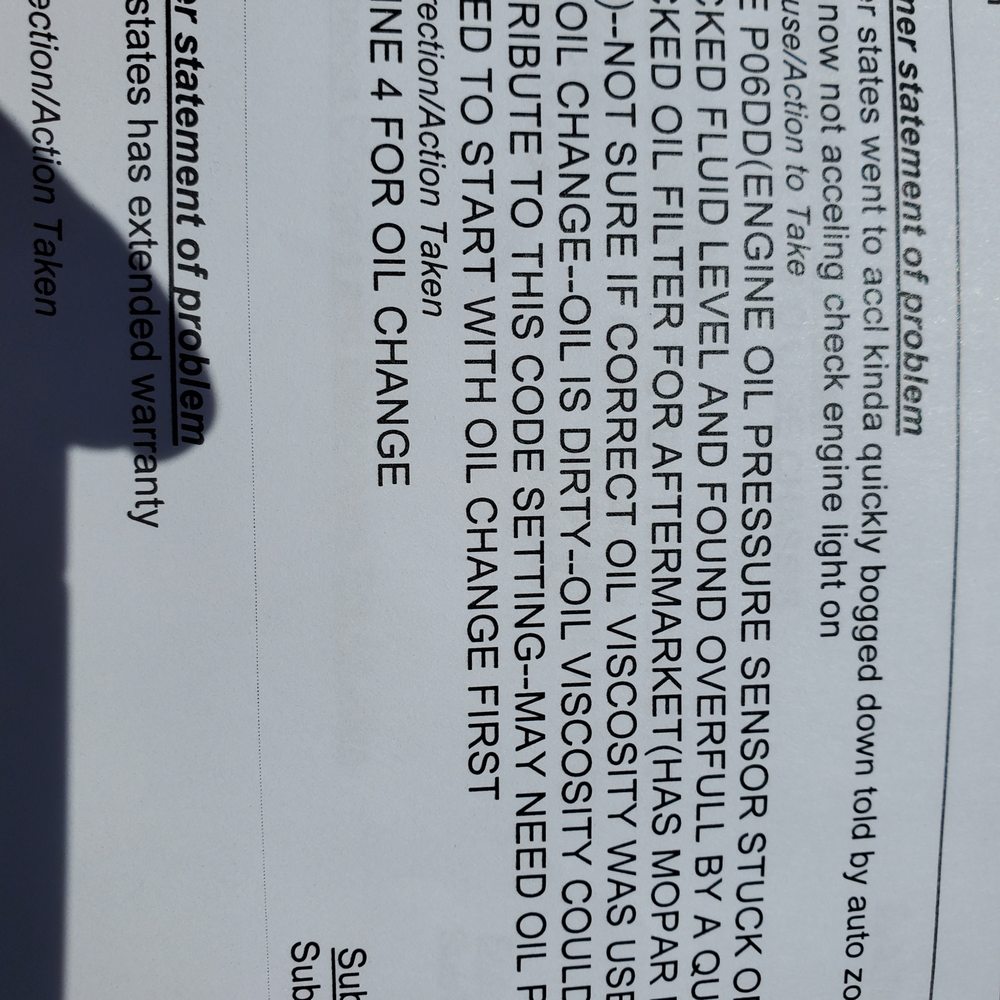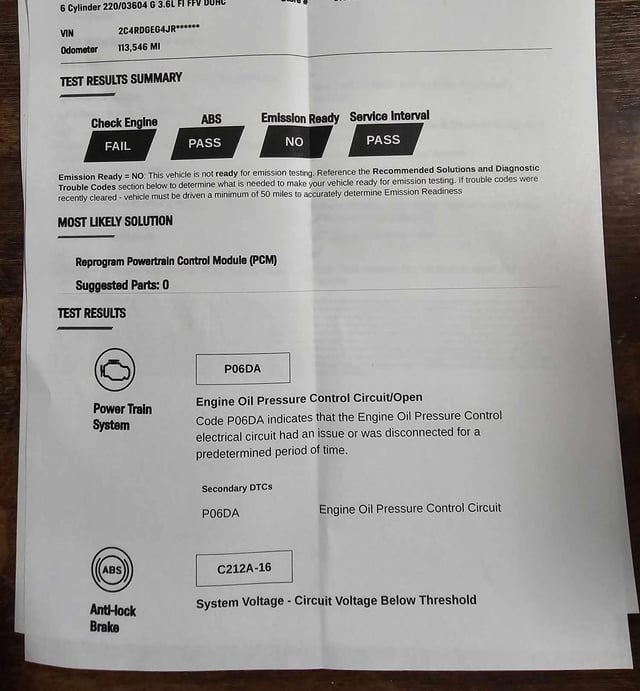Proper maintenance of engine oil and transmission fluid is crucial for vehicle longevity and performance. Regularly changing these fluids ensures smooth operation and prevents costly damage.
Neglecting to replace transmission fluid can lead to overheating and shifting issues, impacting acceleration. Similarly, old engine oil can cause wear and tear on vital components. By following manufacturer recommendations for fluid changes, you can keep your vehicle running smoothly and efficiently.
Regular maintenance checks can help identify any issues early on, saving you from expensive repairs in the long run. Remember, a well-maintained engine and transmission are key to a reliable and long-lasting vehicle.

Credit: www.youtube.com
The Importance Of Engine Oil
Engine oil is the lifeblood of your vehicle, playing a crucial role in maintaining the health and performance of the engine. It serves multiple functions and ensures that the engine operates smoothly. Additionally, keeping an eye on the signs of worn-out engine oil is essential to prevent potential damage to the engine.
Functions Of Engine Oil
Engine oil serves several vital functions to keep the engine running smoothly:
- Lubrication: Engine oil lubricates the moving parts of the engine, reducing friction and minimizing wear and tear.
- Cooling: It helps in dissipating heat from the engine, preventing overheating and ensuring optimal performance.
- Cleaning: Engine oil helps in removing dirt, debris, and contaminants from the engine, keeping it clean and prolonging its life.
- Sealing: It forms a protective layer on the engine components, preventing corrosion and maintaining proper sealing.
Signs Of Worn-out Engine Oil
Recognizing the signs of worn-out engine oil is crucial for timely maintenance:
- Dark and gritty appearance of the oil on the dipstick
- Engine knocking or ticking noises
- Increased exhaust smoke
- Decreased fuel efficiency
- Visible metal particles in the oil
Transmission Fluid Basics
Maintaining engine oil and transmission fluid is crucial for optimal vehicle performance. Regularly changing transmission fluid prevents overheating and system failure, ensuring smooth operation and longevity of your vehicle’s transmission system. Proper maintenance of these fluids is key to preventing damage and ensuring a well-running vehicle.
Transmission fluid is a vital component of your vehicle’s transmission system. It plays a critical role in keeping the gears lubricated and cool, which helps prevent damage and wear. Over time, transmission fluid can break down and become less effective, leading to potential problems down the road.Role Of Transmission Fluid
The main function of transmission fluid is to lubricate the gears within the transmission. This helps prevent friction, heat, and wear, which can lead to damage over time. Additionally, transmission fluid helps to cool the transmission system by dissipating heat. This is particularly important during heavy use, such as towing or driving in hot weather.Symptoms Of Aging Transmission Fluid
As transmission fluid ages, it can become less effective at lubricating and cooling the transmission system. This can lead to a variety of symptoms, including difficulty shifting gears, slipping or jerking between gears, and strange noises coming from the transmission. Additionally, old or contaminated transmission fluid can cause damage to the transmission system over time, leading to expensive repairs. Regular maintenance and fluid changes can help prevent these issues and keep your transmission running smoothly. In conclusion, proper maintenance of your engine oil and transmission fluid is essential to ensure your vehicle’s longevity and smooth operation. Regularly checking and changing your transmission fluid can help prevent potential problems and extend the life of your vehicle.Routine Checks And Maintenance
When it comes to keeping your car running smoothly, routine checks and maintenance of engine oil and transmission fluid are crucial. By regularly inspecting and maintaining these vital fluids, you can ensure the longevity and performance of your vehicle.
Checking Engine Oil Level
Regularly checking the engine oil level is essential for the overall health of your car’s engine. Low engine oil levels can lead to increased friction and heat, potentially causing damage to the engine components. To check the engine oil level, follow these simple steps:
- Make sure the car is parked on a level surface and the engine is turned off.
- Locate the engine oil dipstick, usually marked with a bright-colored handle for easy identification.
- Remove the dipstick, wipe it clean with a cloth, reinsert it fully, and then remove it again to check the oil level.
- The oil level should fall between the minimum and maximum marks on the dipstick. Add more oil if it’s below the minimum mark.
Inspecting Transmission Fluid Condition
Transmission fluid plays a crucial role in lubricating and cooling the transmission system. Regular inspection of the transmission fluid condition can help identify potential issues and prevent costly repairs down the road. Here’s how to inspect the transmission fluid:
- Ensure the car is on a level surface and the engine is running to operating temperature.
- Locate the transmission dipstick, usually near the back of the engine bay.
- Remove the dipstick, wipe it clean, reinsert it, and then remove it again to check the fluid level and condition.
- The fluid should be transparent and red in color. Dark or cloudy fluid may indicate a problem and should be checked by a professional.
Best Practices For Oil Changes
Maintaining engine oil and transmission fluid is crucial for optimal vehicle performance. Follow manufacturer recommendations for oil change intervals and use high-quality fluids to prolong engine life and ensure smooth gear shifts. Regular maintenance prevents costly repairs and extends the longevity of your vehicle’s engine and transmission.
Optimal Oil Change Intervals
Regularly changing your engine oil is crucial for maintaining the health and longevity of your vehicle. The optimal oil change intervals depend on various factors such as driving habits, vehicle age, and manufacturer recommendations.
Choosing The Right Oil For Your Vehicle
Choosing the correct type of oil for your vehicle is essential to ensure optimal performance and longevity. Consult your vehicle’s manual or seek advice from a professional to determine the best oil for your specific make and model.
Transmission Fluid Change Frequency
Transmission fluid plays a critical role in ensuring the smooth operation of your vehicle’s transmission system. Regularly changing the transmission fluid is essential to maintain optimal performance and prevent potential issues.
When To Change Transmission Fluid
It is recommended to change the transmission fluid every 30,000 to 60,000 miles to keep the transmission running smoothly. Refer to your vehicle’s manual for specific recommendations based on your driving habits and the type of transmission fluid used.
Risks Of Delayed Transmission Fluid Changes
- Delayed transmission fluid changes can lead to increased friction and heat within the transmission system.
- Old and degraded fluid can cause premature wear and damage to transmission components.
- Neglecting fluid changes may result in poor shifting, transmission slippage, and potential transmission failure.
Diy Care Tips
Proper maintenance of engine oil and transmission fluid is crucial for the longevity and performance of your vehicle. By following these DIY care tips, you can ensure that your car’s vital fluids are in top condition, saving you time and money in the long run.
Step-by-step Guide To Changing Engine Oil
Changing your engine oil is a fundamental part of car maintenance. Follow these simple steps to perform an oil change at home:
- Start by parking your car on a level surface and letting the engine run for a few minutes to warm up the oil.
- Locate the oil drain plug underneath the car and place a drain pan beneath it to catch the old oil.
- Remove the drain plug and allow the old oil to drain completely.
- Once the old oil has drained, replace the drain plug and remove the oil filter.
- Install a new oil filter and proceed to fill the engine with fresh, high-quality engine oil.
- Finally, check the oil level using the dipstick and top up if necessary.
How To Replace Transmission Fluid At Home
Replacing transmission fluid is equally important and can be done at home with the following steps:
- First, locate the transmission fluid drain plug and the fill plug on the transmission pan.
- Place a drain pan underneath the drain plug and remove it to let the old transmission fluid drain out.
- Once the old fluid has drained, replace the drain plug and remove the fill plug.
- Using a fluid pump, fill the transmission with the recommended type of transmission fluid until it reaches the proper level.
- Replace the fill plug and start the engine to allow the fluid to circulate.
- Check the fluid level again and top up if necessary.
Professional Maintenance Services
Professional Maintenance Services offer expert care for engine oil and transmission fluid. Ensure smooth vehicle operation and prevent damage with regular maintenance. Trust professionals to keep your car running at its best.
Benefits Of Professional Oil Changes
Regular oil changes are crucial to keep your engine running smoothly and prolong its lifespan. While many car owners choose to perform oil changes themselves, there are significant benefits to taking your vehicle to a professional mechanic for this service. Firstly, professional mechanics have the knowledge and expertise to identify any underlying issues that may be affecting your engine’s performance. They can also recommend the best type of oil for your specific make and model of vehicle. In addition, professional oil changes often include a full inspection of your vehicle’s engine and other components, ensuring that any potential problems are caught early and addressed before they become major issues.Finding A Trustworthy Mechanic For Transmission Service
When it comes to transmission service, it’s important to find a trustworthy mechanic who has experience working with your specific make and model of vehicle. A good mechanic will not only perform the necessary maintenance and repairs but also give you peace of mind knowing that your vehicle is in good hands. To find a trustworthy mechanic for transmission service, start by asking friends and family for recommendations. You can also check online reviews and ratings to get a sense of a mechanic’s reputation. Once you have a few potential candidates, schedule a consultation to discuss your vehicle’s needs and ensure that the mechanic is qualified to perform the necessary services. Don’t be afraid to ask questions and get a sense of the mechanic’s expertise and professionalism before making a decision. Ultimately, investing in professional maintenance services for your engine oil and transmission fluid can save you time and money in the long run by preventing major issues and prolonging your vehicle’s lifespan.
Credit: www.cars.com
Troubleshooting Common Issues
When it comes to maintaining your vehicle’s engine oil and transmission fluid, understanding how to troubleshoot common issues is crucial for ensuring optimal performance and longevity. From dealing with engine oil leaks to addressing transmission fluid contamination, staying proactive in identifying and resolving these problems can save you from costly repairs and potential breakdowns.
Dealing With Engine Oil Leaks
Engine oil leaks can lead to a variety of problems, including reduced lubrication, overheating, and potential engine damage. To address this issue, it’s essential to pinpoint the source of the leak and take appropriate action. Start by inspecting the oil pan, gaskets, and seals for signs of wear or damage. Additionally, check for loose or damaged oil filters and drain plugs. Regularly inspecting these components and addressing any issues promptly can help prevent leaks and preserve the integrity of your engine oil system.
Addressing Transmission Fluid Contamination
Transmission fluid contamination can arise from various sources, such as fluid leaks, overheating, or internal component wear. Contaminated fluid can jeopardize the transmission’s ability to function properly, leading to rough shifting, slipping, or complete failure. When addressing this issue, begin by checking the fluid’s color and consistency. If you notice burnt odor, discoloration, or foreign particles, it’s crucial to flush the transmission system and replace the fluid with a high-quality, manufacturer-approved alternative. Regularly inspecting for leaks and maintaining proper fluid levels can help prevent contamination and preserve the transmission’s longevity.
Advanced Care Strategies
When it comes to maintaining your vehicle’s engine oil and transmission fluid, advanced care strategies can make a significant difference in the performance and longevity of your vehicle. Implementing advanced care strategies for engine oil and transmission fluid maintenance involves utilizing high-quality products and understanding the benefits of synthetic vs. conventional oils as well as high-performance transmission fluids.
Synthetic Vs. Conventional Oils
When choosing engine oil, it’s essential to consider the differences between synthetic and conventional oils. Synthetic oils are engineered to offer superior protection and performance, especially in extreme temperatures and high-stress driving conditions. On the other hand, conventional oils are derived from crude oil and are generally more affordable. However, synthetic oils provide better lubrication, reduce engine wear, and offer improved fuel efficiency.
High-performance Transmission Fluids
High-performance transmission fluids are designed to withstand higher temperatures and provide better lubrication and protection for your vehicle’s transmission system. These fluids are formulated with advanced additives and base oils to enhance thermal stability, shear resistance, and overall performance. By using high-performance transmission fluids, you can ensure smoother gear shifts, reduced wear on transmission components, and improved overall transmission longevity.

Credit: www.capitalone.com
The Environmental Angle
Proper Disposal Of Used Fluids
Ensure used engine oil and transmission fluid are disposed of responsibly to prevent environmental harm.
Eco-friendly Fluid Options
Consider switching to eco-friendly engine oils and transmission fluids to reduce your carbon footprint.
Frequently Asked Questions
How Often Should You Change Oil In Transmission Fluid?
Change transmission fluid every 30,000-60,000 miles for optimal performance and to prevent damage to the system.
Is It Necessary To Have Transmission Fluid Serviced?
Regular transmission fluid servicing is essential to maintain smooth transmission operation and prevent premature wear and damage. Without proper maintenance, the transmission system can overheat and fail, leading to costly repairs. Ensure regular transmission fluid changes to keep your vehicle running smoothly.
What Happens If You Don’t Change Transmission Fluid?
If you don’t change your transmission fluid regularly, it can cause system failure and difficulty in shifting gears. Low fluid levels can also lead to irreparable damage and prevent your vehicle from operating correctly. Regular maintenance, including changing transmission fluid, is essential to keep your vehicle running smoothly and prevent costly repairs down the road.
Does Oil Change Include Transmission Fluid?
No, an oil change does not include transmission fluid. Transmission fluid is a separate maintenance item.
Conclusion
To ensure your vehicle runs smoothly, regular maintenance of engine oil and transmission fluid is crucial. Neglecting these can lead to costly repairs and decreased performance. Stay proactive in maintaining these fluids for a longer-lasting and efficient vehicle operation. Prioritize engine and transmission fluid care for optimal vehicle health.


